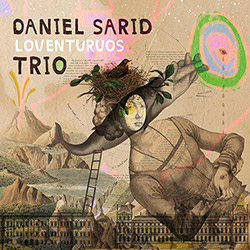
Adventurous/Leventuruos is a good description of the articulate, sophisticated, and exciting trio work that Israeli pianist Daniel Sarid, double bassist Gilad Abro, and drummer Ziv Ravitz present, in 8 dynamic pieces that balance free, rapid and lyrical jazz.
Out of Stock
Quantity in Basket: None
Log In to use our Wish List
Shipping Weight: 3.00 units
Sample The Album:
Daniel Sarid-piano
Gilad Abro-doublebass
Ziv Ravitz-drums
Click an artist name above to see in-stock items for that artist.
UPC: 7035106337746
Label: OutNow Recordings
Catalog ID: ON028
Squidco Product Code: 23813
Format: CD
Condition: New
Released: 2016
Country: USA
Packaging: Cardboard Gatefold
Recorded at Pluto, in Tel Aviv, Israel, on July 15th, 2015, by Jean Claude Jones and Ziv Ravitz.
"If one were to meander through the Israeli experimental scene, or the free jazz scene, or even the standard jazz scene, or you know what, even the classical music scene, one won't need long before s/he is introduced with the name Daniel Sarid. Hence, it's a very interesting fact that Sarid, although an accomplished pianist and composer, doesn't consider himself an active musician when compared to some of his colleagues, who I must add, would disagree with him wholeheartedly. Regardless, Sarid was one of those products of the 80s who were fortunate enough to bring about the birth of a new scene in Israel, encompassing experimental styles from classical avant-garde to free jazz. This came about, at first, with his managing years at the Gada Ha'Smalit, by now a defunct mythical venue for experimental music, and later with his joining forces with two other Israeli musical greats - Assif Tsahar, and Ilan Volkov, in the formation of the Levontin 7, still active now in it's 10th year. The Levontin 7, other than being the "it" place in Tel Aviv for many years, represents a meeting point for various musical genres coinciding quite peacefully under one roof. It is quite customary to attend a free jazz concert there one night, an indie rock gig the next, a classical recital on a different evening, followed by an experimental evening of noise, closing with some heavy metal. This is perhaps why people react so fondly to this venue, as it has no agenda in its programming other than parading this lack of agenda. But more so, and as you'll soon discover, it represents this same generation of artists Sarid is part of, and their insistence on creating in Israel a scene corresponding with similar scenes in the world, yet acting in a manner completely of its own.
Sarid travels back in thought in order to describe his journey, and begins with his adolescence in the 80s. The defining mood was one marked by an inability to feel a sense of individuality within what was then still a highly a recruited society. The ethos of Zionism was still quite alive, and it seemed that any conscious or even subconscious act of self could be deemed an attack on the collective spirit. Sarid couldn't find his voice within this culture and its manifestation in language and art. As a telling example, he recounts for us his feelings upon hearing the music of Pink Floyd for the first time - an experience he describes as mind boggling. Here was a music that paraded the individuals creating it, and almost celebrated the individualistic status. At this point, Sarid was not yet aware of the problematic aspect of self-idolatry, as he was simply awe struck by the possibility of setting oneself on the pedestal rather than the "cause", or societal issues.
Sarid continues to describe how his father once took him, the adolescent musician, to see the Globe Unity Orchestra, who was on tour in Israel. This reconnects, in Sarid's mind, to the first performance of Cecil Taylor he saw in Chicago at the age of 15. In both instances it was not the music taking the forefront, but the energy and spirit. These were musical examples in which an ensemble is formed out of complete distinguishable individuals. For Saird, this music presented a possibility for an individualistic practice in art, a practice far removed from his then surroundings.
Hence it should come as no surprise that a few years later we find Sarid in NY, immersed in a scene, which, at first, provided a mirror for his lack of knowledge and provinciality, and this although he was already considered a bonafide member of the jazz scene in Israel. More interestingly, it was during the NY years that Sarid slowly realised that music was only a part in a larger spiritual practice, and came to an important underlying understanding regarding freedom - namely that freedom isn't about being alone.
Sarid noticed that many of the finest protagonists of "free" music were, by default, outcasts - lonely individuals struggling for survival within a society (not necessarily financially, although this many times was the case too). He realised that the position of these same artists, being critical, immediately excluded them from within artistic societies that simply weren't able to contain this criticism without seeing it as an outright attack. In accordance, Sarid describes a difficult period of struggle where although feeling free, he also felt extremely lonely. This was the feeling that also led to his eventual return to Israel. But with this return Sarid finally managed to create a synthesis between his personal development, music, and society.
Sarid mentions our past guest, Harold Rubin, as instrumental to his personal realisations upon his return. Rubin representing, possibly as he does for an entire generation of improvisers, this portal from specific musical thought towards a holistic approach. Soon after, Sarid is already managing the Gada Ha'Smalit, which allowed a renewed connection with society and the founding community that will, in time, become the experimental music scene in Israel.
In almost immediate reaction, Sarid warns us of scenes, quoting Bob Dylan who said: "good and bad are concepts created by people within scenes". The Levontin 7, hence, was a practical solution brought about by three friends within that fledgling scene who shared the common ethos claiming that there is no such thing as a bad genre in music.
And now, back to Israel 2016, Sarid describes himself as a person who doesn't much see himself as a soloist or indeed someone producing solo work. However, both his solo endeavours (as the examples recorded for us at Halas) as well as his ensemble formations (as can be seen in his upcoming trio CD release) represent a facet of his inner search. In a simple fashion, Sarid presents a simple and beautiful notion: "our need as societies and individuals is for healing and therapy, and music is my way". And so finally, I reach a closer understanding of why Sarid doesn't necessarily refer to himself as an active musician, but rather sees music as a way of life... a shade of relation to self, which is much grander than music alone. Although I relate with this sentiment, I still have to disagree... in my eyes Sarid is as close as one gets to the real deal."
-Experimental IsraelArtist Biographies
• Show Bio for Daniel Sarid "If one were to meander through the Israeli experimental scene, or the free jazz scene, or even the standard jazz scene, or you know what, even the classical music scene, one won't need long before s/he is introduced with the name Daniel Sarid. Hence, it's a very interesting fact that Sarid, although an accomplished pianist and composer, doesn't consider himself an active musician when compared to some of his colleagues, who I must add, would disagree with him wholeheartedly. Regardless, Sarid was one of those products of the 80s who were fortunate enough to bring about the birth of a new scene in Israel, encompassing experimental styles from classical avant-garde to free jazz. This came about, at first, with his managing years at the Gada Ha'Smalit, by now a defunct mythical venue for experimental music, and later with his joining forces with two other Israeli musical greats - Assif Tsahar, and Ilan Volkov, in the formation of the Levontin 7, still active now in it's 10th year. The Levontin 7, other than being the "it" place in Tel Aviv for many years, represents a meeting point for various musical genres coinciding quite peacefully under one roof. It is quite customary to attend a free jazz concert there one night, an indie rock gig the next, a classical recital on a different evening, followed by an experimental evening of noise, closing with some heavy metal. This is perhaps why people react so fondly to this venue, as it has no agenda in its programming other than parading this lack of agenda. But more so, and as you'll soon discover, it represents this same generation of artists Sarid is part of, and their insistence on creating in Israel a scene corresponding with similar scenes in the world, yet acting in a manner completely of its own. Sarid travels back in thought in order to describe his journey, and begins with his adolescence in the 80s. The defining mood was one marked by an inability to feel a sense of individuality within what was then still a highly a recruited society. The ethos of Zionism was still quite alive, and it seemed that any conscious or even subconscious act of self could be deemed an attack on the collective spirit. Sarid couldn't find his voice within this culture and its manifestation in language and art. As a telling example, he recounts for us his feelings upon hearing the music of Pink Floyd for the first time - an experience he describes as mind boggling. Here was a music that paraded the individuals creating it, and almost celebrated the individualistic status. At this point, Sarid was not yet aware of the problematic aspect of self-idolatry, as he was simply awe struck by the possibility of setting oneself on the pedestal rather than the "cause", or societal issues. Sarid continues to describe how his father once took him, the adolescent musician, to see the Globe Unity Orchestra, who was on tour in Israel. This reconnects, in Sarid's mind, to the first performance of Cecil Taylor he saw in Chicago at the age of 15. In both instances it was not the music taking the forefront, but the energy and spirit. These were musical examples in which an ensemble is formed out of complete distinguishable individuals. For Saird, this music presented a possibility for an individualistic practice in art, a practice far removed from his then surroundings. Hence it should come as no surprise that a few years later we find Sarid in NY, immersed in a scene, which, at first, provided a mirror for his lack of knowledge and provinciality, and this although he was already considered a bonafide member of the jazz scene in Israel. More interestingly, it was during the NY years that Sarid slowly realised that music was only a part in a larger spiritual practice, and came to an important underlying understanding regarding freedom - namely that freedom isn't about being alone. Sarid noticed that many of the finest protagonists of "free" music were, by default, outcasts - lonely individuals struggling for survival within a society (not necessarily financially, although this many times was the case too). He realised that the position of these same artists, being critical, immediately excluded them from within artistic societies that simply weren't able to contain this criticism without seeing it as an outright attack. In accordance, Sarid describes a difficult period of struggle where although feeling free, he also felt extremely lonely. This was the feeling that also led to his eventual return to Israel. But with this return Sarid finally managed to create a synthesis between his personal development, music, and society. Sarid mentions our past guest, Harold Rubin, as instrumental to his personal realisations upon his return. Rubin representing, possibly as he does for an entire generation of improvisers, this portal from specific musical thought towards a holistic approach. Soon after, Sarid is already managing the Gada Ha'Smalit, which allowed a renewed connection with society and the founding community that will, in time, become the experimental music scene in Israel. In almost immediate reaction, Sarid warns us of scenes, quoting Bob Dylan who said: "good and bad are concepts created by people within scenes". The Levontin 7, hence, was a practical solution brought about by three friends within that fledgling scene who shared the common ethos claiming that there is no such thing as a bad genre in music. And now, back to Israel 2016, Sarid describes himself as a person who doesn't much see himself as a soloist or indeed someone producing solo work. However, both his solo endeavours (as the examples recorded for us at Halas) as well as his ensemble formations (as can be seen in his upcoming trio CD release) represent a facet of his inner search. In a simple fashion, Sarid presents a simple and beautiful notion: "our need as societies and individuals is for healing and therapy, and music is my way". And so finally, I reach a closer understanding of why Sarid doesn't necessarily refer to himself as an active musician, but rather sees music as a way of life... a shade of relation to self, which is much grander than music alone. Although I relate with this sentiment, I still have to disagree... in my eyes Sarid is as close as one gets to the real deal." ^ Hide Bio for Daniel Sarid • Show Bio for Gilad Abro "Gilad Abro, Born in South Africa Capetown, moved to Israel at the age of 10. Only in junior high was exposed to music and was mostly intrested in the bass! Started his first musical lesson at the age of 16! At the age of 17 already became a Professional player! Gilad studied at the High School for Arts and Science "Alon", Where he studied with great teachers such as Amit Golan, Walter Blanding, Shay Zelman. Gilad studied with great maestros on the bass! Such as: Teddy Kling, Barak Mori, Omer Avital, Maestro Michael KlingHoffer, Avishai Cohen. At 21 Abro studied classical compisition at The Rubin Acedemy for Music in Jerusalem. Won the Musician of Excellence Grant / Award given by the "American-Israel Foundation" a few times. Won first prize for the "Jazz player of the year" contest at "Rimon" School for Jazz and Temporary music" (2003) and was invited to perform in Italy at the Umbria Jazz Festival. Gilad works and peform's with almost every most important Jazz Band in Israel. Bands such as Daniel Zamir, Amos Hoffman, Ilan Salem, Gilad Hekselman, Shai Maestro, Yotam Silberstein, Itay Kriss Exc. Abro beside's his strong herritage in Jazz Found his ground in all styles and music working with great musicians, peforming, recording. Abro at the age of 25 started working with D.J Skazi. Arranging scores for strings and conducting for the concert: "Skazi live with strings", As well as playing bass for the "Skazi live act band" peforming in huge avenue's and festivals all over the world. Gilad Toured in countrys like Japan, Brasil, United States, Mexico, Spain, South Africa, Poland, Holland, Italy, Great Britain, Sweden, Czech Republic, Cyprus, France, Egypt, Romania, Serbia. Recorded and peformed with great israeli singers such as: Marina Maximillion Blumin, Micha Shitrit, Berry Saharof. Abro peformed and recorded with jazz masters as visiting artists and abroad such as: Johnny Griffin, Richard Davis, Jimmie Cobb, Larry Willis, Avishai Cohen, Eddie Henderson, Kirk Lightsy, Arnie Lawrance, John Regen, Maucha Adnet, Jerry Gonzales, Curtis Fuller, John Hicks and more." ^ Hide Bio for Gilad Abro • Show Bio for Ziv Ravitz "Ziv was born in Beer-Sheva, Israel to a family of musicians, he was drawn to music at an early age, playing the guitar, keyboard and drum. When he was 9 years old he started focusing on drums and by the age of 13 begun his professional career, playing the drums at various clubs in Beer-Sheva and Tel Aviv and acquiring experience in a variety of musical styles, such as Jazz, rock and avant-garde. In 1999 Ziv was chosen as a reserved drummer for guest performers from Europe and the United States at the Camelot Jazz Club in Tel Aviv. Ziv moved to the US in the summer of 2000 to expand his musical experience and to grow as a Jazz composer. Since then he has been performing and recording with numerous ensembles in the Boston area, both as a freelancer and as an artist using his own compositions, which reflect his individual and unique sound. Ziv had the opportunity to perform with musicians such as Hal Crook, Greg Hopkins, Joe Lovano, Lee Konitz, Eugene Friesen, Mick Goodrick, Eli Dejibri, James Genus, George Garzone, Ben Monder, Avishai Cohen and more. In the winter of 2003, Ziv has become an official recording artist of Huber Music Management and Recording label of Cologne, Germany. In June 2003 Ziv won the Zildjian Scholarship Award. Since then Ziv had toured extensively all across Europe with various groups such as TAQ, Minsarah, Sin, Nicolas Simon Group, Iasi Romanian Philharmonic Orchestra. At Dec 2004 Ziv graduated from Berklee School of Music with a Jazz Composition Degree. Ziv is currently sign to ENJA as recording artist." ^ Hide Bio for Ziv Ravitz
12/17/2025
Have a better biography or biography source? Please Contact Us so that we can update this biography.
12/17/2025
Have a better biography or biography source? Please Contact Us so that we can update this biography.
12/17/2025
Have a better biography or biography source? Please Contact Us so that we can update this biography.
Track Listing:
1. Loventurous 5:20
2. Your Here 3:16
3. Declaration Of Intentions 4:50
4. Lighthouse 6:11
5. Pearls Of Joy 4:19
6. Paintimicy 6:19
7. Peace 3:58
8. Ama-Gi 6:22
Improvised Music
Jazz
Trio Recordings
Staff Picks & Recommended Items
Last Copy of Items that will not be restocked...
Miva Delete Product Category
Search for other titles on the label:
OutNow Recordings.


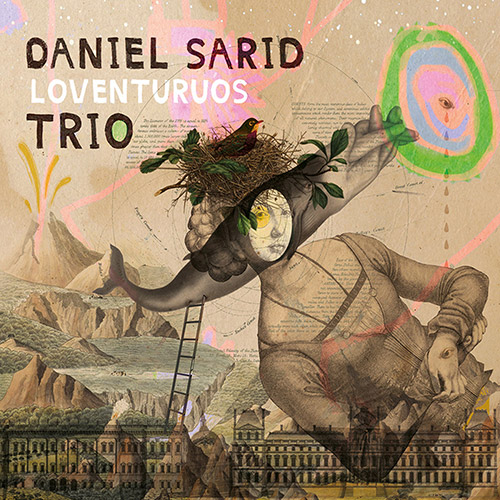

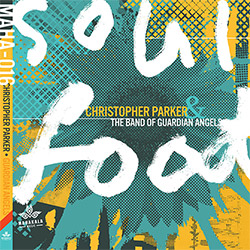


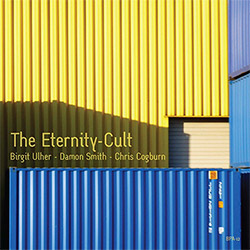
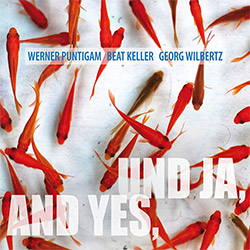
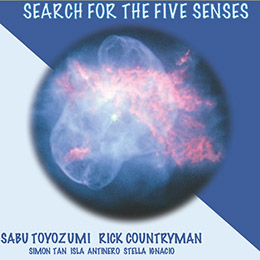

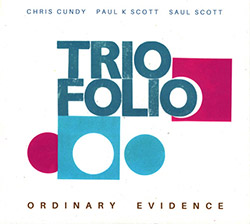
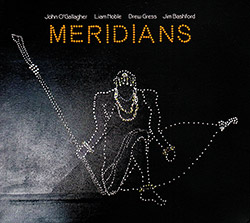

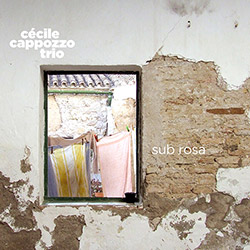




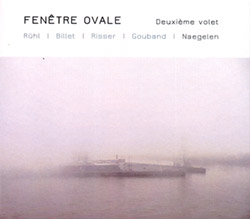
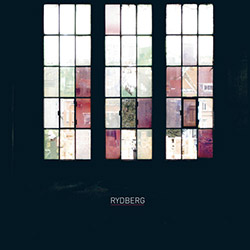


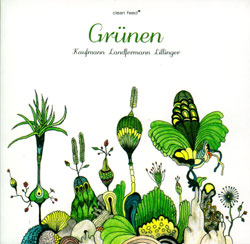
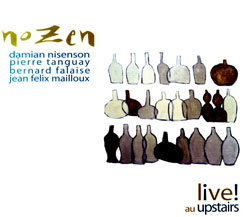

![HobbyHouse (Mia Dyberg / Axel Filip): HobbyHouse [CD + DOWNLOAD]](https://www.teuthida.com/productImages/misc4/36944.jpg)
![Mines, Kelsey / Erin Rogers: Scratching At The Surface [CD + DOWNLOAD]](https://www.teuthida.com/productImages/misc4/36945.jpg)
![Nebbia, Camila (feat/ Marilyn Crispell / Lesley Mok): A Reflection Distorts Over Water [CD + DOWNLOAD]](https://www.teuthida.com/productImages/misc4/36946.jpg)
![Vanheerentals, Adia: Taking Place [CD + DOWNLOAD]](https://www.teuthida.com/productImages/misc4/36947.jpg)
![Mines, Kelsey / Vinny Golia: Collusion and Collaboration [CD + DOWNLOAD]](https://www.teuthida.com/productImages/misc4/36948.jpg)
![Parkins, Zeena: Lament For The Maker [CD + DOWNLOAD]](https://www.teuthida.com/productImages/misc4/36949.jpg)
![Evans, Peter / Mike Pride : A Window, Basically [CD + DOWNLOAD]](https://www.teuthida.com/productImages/misc4/36950.jpg)


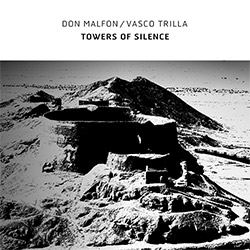
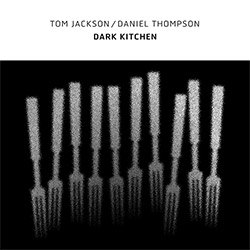
![Frey, Jurg : Composer, Alone [3 CDs]](https://www.teuthida.com/productImages/misc4/36927.jpg)
![Belorukov, Ilia / Alex Riva: Wrestling For Futility [CASSETTE w/DOWNLOAD]](https://www.teuthida.com/productImages/misc4/36994.jpg)

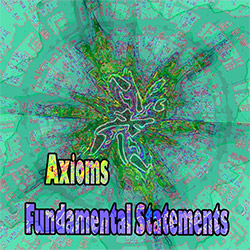










![Agnel, Sophie: Learning [VINYL]](https://www.teuthida.com/productImages/misc4/36841.jpg)

![Monaco, Amanda (w/ Michael Attias / Sean Conly / Satoshi Takeishi) : Deathblow [VINYL+ DOWNLOAD]](https://www.teuthida.com/productImages/misc4/36956.jpg)
![Frey, Jurg with ensemble]h[iatus: Je Laisse A La Nuit Son Poids D](https://www.teuthida.com/productImages/misc4/36988.jpg)
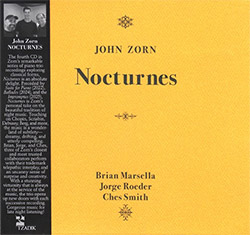
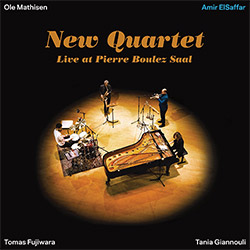
![ElSaffar, Amir / New Quartet : Live at Pierre Boulez Saal [VINYL]](https://www.teuthida.com/productImages/misc4/36830.jpg)

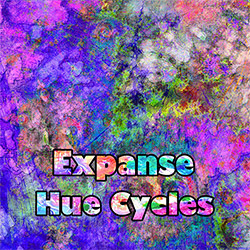
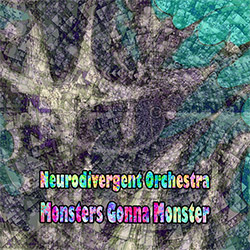
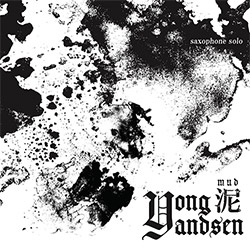

![Musicworks Magazine: #152 Fall 25 [MAGAZINE + CD]](https://www.teuthida.com/productImages/misc4/37004.jpg)
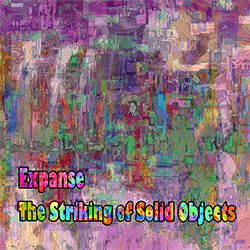




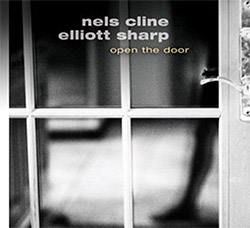
![[ahmed] (Thomas / Grip / Gerbal / Wright): Sama](https://www.teuthida.com/productImages/misc4/36976.jpg)

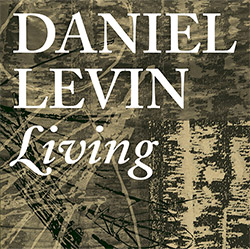
![Cleaver, Gerald / Brandon Lopez / Hprizm: In The Wilderness [COLOR VINYL]](https://www.teuthida.com/productImages/misc4/33060.jpg)
![McPhee, Joe : Defiant Jazz: a Joe McPhee Taster [VINYL]](https://www.teuthida.com/productImages/misc4/36859.jpg)
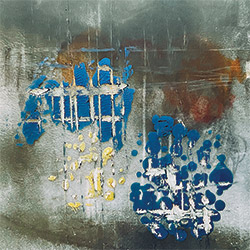
![Mateen, Sabir / Patrick Holmes / Federico Ughi : Survival Situation [LTD VINYL LP + DOWNLOAD]](https://www.teuthida.com/productImages/misc4/29891.jpg)
![Tucker, Dave / Pat Thomas / Thurston Moore / Mark Sanders: Educated Guess Vol. 1 [COLORED VINYL]](https://www.teuthida.com/productImages/misc4/30183.jpg)
![Sarian, Michael / Matthew Putman: A Lifeboat (Part I) [COLORED VINYL]](https://www.teuthida.com/productImages/misc4/30426.jpg)

![Genthon, Anouck / Lionel Marchetti: Suite Blanche [2 CDs]](https://www.teuthida.com/productImages/misc4/36642.jpg)
![Toeplitz, Kasper T.: Erosions Programmees [CD + BOOKLET]](https://www.teuthida.com/productImages/misc4/36639.jpg)
![Gate, The : Amost Live [CASSETTE + MAGAZINE]](https://www.teuthida.com/productImages/misc4/36836.jpg)






![A Magic Whistle: The Solar Cell [VINYL]](https://www.teuthida.com/productImages/misc4/36658.jpg)

![McGee, Hal: Columbus Expedition [Cassette w/ Download]](https://www.teuthida.com/productImages/misc4/36650.jpg)


![Jaeger, Kassel: Fernweh [VINYL 2 LPs]](https://www.teuthida.com/productImages/misc4/36541.jpg)





![+DOG+: The Light Of Our Lives [2 CDs]](https://www.teuthida.com/productImages/misc4/36009.jpg)


![Eternities: Rides Again [CASSETTE]](https://www.teuthida.com/productImages/misc4/36247.jpg)

![Lopez, Francisco: Untitled (2021-2022) [2 CDs]](https://www.teuthida.com/productImages/misc4/36438.jpg)





![Pisaro-Liu, Michael: Within (2) / Appearance (2) [2 CDs]](https://www.teuthida.com/productImages/misc4/36831.jpg)










![Musicworks Magazine: #151 Summer 25 [MAGAZINE + CD]](https://www.teuthida.com/productImages/misc4/36559.jpg)

![Brown, Dan / Dan Reynolds: Live At The Grange Hall [unauthorized][CASSETTE]](https://www.teuthida.com/productImages/misc4/36245.jpg)


![Zorn, John: The Song of Songs [CD + CD BOOK]](https://www.teuthida.com/productImages/misc4/36923.jpg)

![Coultrain: Mundus [COLORED VINYL]](https://www.teuthida.com/productImages/misc4/33056.jpg)
![Hprizm: Signs Remixed [COLORED VINYL]](https://www.teuthida.com/productImages/misc4/30635.jpg)
![Halls Of the Machine: All Tribal Dignitaries [CASSETTE w/ DOWNLOAD]](https://www.teuthida.com/productImages/misc4/36134.jpg)



![Koenjihyakkei: Live at Club Goodman [2 CDs]](https://www.teuthida.com/productImages/misc4/36111.jpg)

![Sorry For Laughing (G. Whitlow / M. Bates / Dave-Id / E. Ka-Spel): Rain Flowers [2 CDS]](https://www.teuthida.com/productImages/misc4/35985.jpg)

![Rolando, Tommaso / Andy Moor : Biscotti [CASSETTE w/ DOWNLOADS]](https://www.teuthida.com/productImages/misc4/36106.jpg)


![Electric Bird Noise / Derek Roddy: 8-10-22 [CD EP]](https://www.teuthida.com/productImages/misc4/35970.jpg)








![Elephant9 : Mythical River [VINYL]](https://www.teuthida.com/productImages/misc4/34624.jpg)



![Elephant9 with Terje Rypdal: Catching Fire [VINYL 2 LPs]](https://www.teuthida.com/productImages/misc4/35355.jpg)
![Coley, Byron: Dating Tips for Touring Bands [VINYL]](https://www.teuthida.com/productImages/misc4/17906.jpg)

![Lost Kisses: My Life is Sad & Funny [DVD]](https://www.teuthida.com/productImages/misc4/lostKissesDVD.jpg)